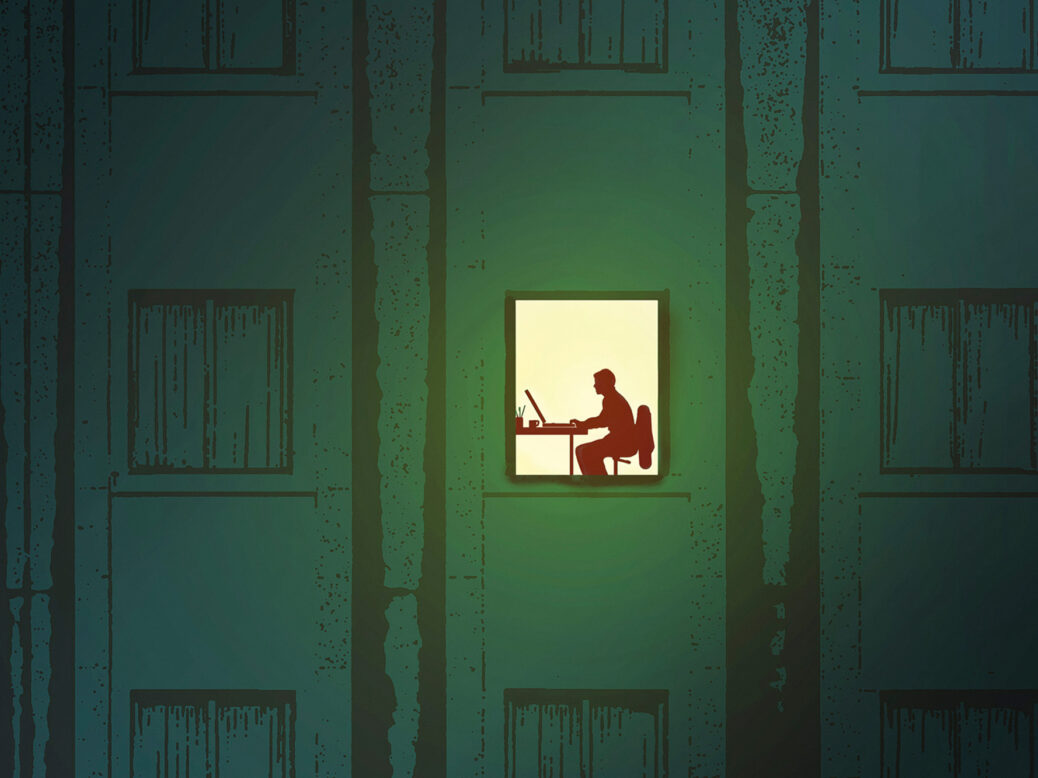
The new energy price cap announced by Ofgem today (26 August) raises the average energy bill to £3,549 a year from October. This will dramatically increase the cost of living, not only because prices are rising just as the UK heads into winter but because, following the shift to remote work caused by the pandemic, people spend a lot more time at home than they did before.
Nearly half the working population switched to remote work during the lockdowns of 2020, and of the workers that did, 84 per cent plan to continue. The Office for National Statistics reports that just under a quarter of the UK workforce was working partly from home in May.
However, these workers now face a huge rise in the price of staying at home. The largest of these costs will be heating: from 1 October even a small (24kW) combi boiler of the type found in most flats will cost £3.60 an hour to run at full power, at the new gas tariff of 15p per kilowatt hour. A 32kW boiler will cost £4.80 an hour at full power.
Boilers only run at full power while the central heating is coming up to the heat set by the thermostat, and the wide variety in insulation and boiler efficiency (which can decline by 30 per cent over ten years) makes it hard to place an exact cost on keeping a home warm for a working day, because British homes differ so greatly. Wealthier homeowners – who are more likely to have a new, efficient boiler and a multi-zone system – may be able to heat their home office only and keep bills down, while a person renting a poorly insulated property with single-zone heating will see a far bigger increase.
There are signs that working from home has increased domestic energy demand, which was higher in 2021 than in any year since 2013. The government’s most recent survey on energy use found that homes with someone in all day were heated for a median average of eight and a half hours a day, but people will inevitably use less energy as prices rise.
Heating is not the only cost, however. A desktop PC and monitor, consuming 300 watts for eight hours, will cost £1.25 a day at the new rate of 52p per kilowatt hour. An efficient laptop will use much less power, but a video editor or game designer using a high-end PC could use more: the latest Mac Pro uses more than 300 watts when idle, and up to 900 watts on demanding tasks. Lighting uses less power, but it still adds up; even boiling a kettle will cost more than 10p, based on a four-minute boil at 2kW.
[See also: Who do we trust to run the economy?]
How much will an eight-hour day of working from home in the typical British home cost, then, under the new price cap? Because there’s no such thing as a typical British home, it’s hard to say. A few hours of running a 32kW boiler could add almost £10; a really poorly insulated property with an old boiler and single-zone heating could cost upwards of £30 to heat all day.
This doesn’t account for the ancillary costs to workers of providing their own equipment and services such as broadband connections – all of which are also increasing in price because of high inflation.
Transport costs are rising too (unless you cycle or walk to work), but rail fares will not increase again until March. The typical season ticket currently costs £3,263 a year (or £12.55 per day, over 260 working days), and many workers may begin to ask if it will be cheaper to take on the cost of commuting and leave their homes empty and unheated during the working day. At roughly 47p per mile (according to the finance analysts NimbleFins), commuting by car will also be a cheaper option for some workers.
Some employers will quietly welcome this, especially those who have had a difficult time persuading workers to spend more time in the office; mandatory attendance policies have led to employee protests at highly regarded employers such as Apple and Google. But for others, it will mean yet another increase in running costs. The energy prices paid by businesses aren’t capped, and as their fixed-price deals run out they are having to face, in many cases, fivefold increases.
This could lead to a difficult stand-off this winter. Companies may begin to ask whether they can afford to keep the office open, at the very moment that their employees want it back.
[See also: Can pubs afford to keep the lights on this winter?]
This article was updated on 31 August to add more explanation of the prices quoted.





